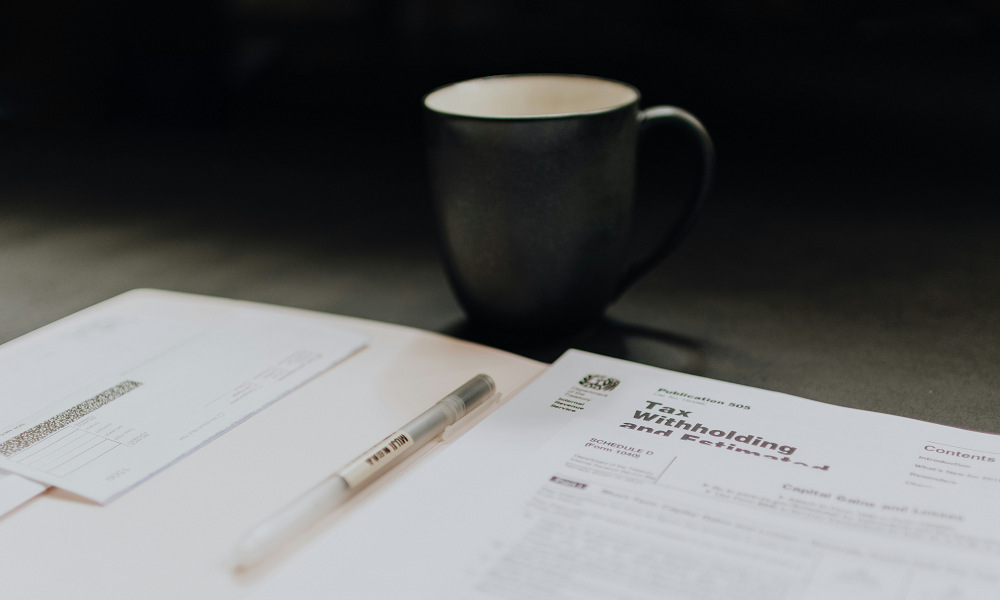Reviews
How to Avoid Costly Tax Mistakes as a Freelancer or Small Business Owner

Tax time can be one of the most stressful times of the year, especially if you’re a freelancer or small business owner. You’re not just filing a simple W-2 like most folks; you’re dealing with invoices, expenses, and deductions that can make filing taxes a bit overwhelming. But here’s the good news: with a few proactive steps and smart habits, you can avoid the most common (and costly) tax mistakes. Let’s dive into the tips that can save you from stress, and keep more money in your pocket.
Organize Your Financial Records Year-Round
Do you know the biggest mistake most freelancers and small business owners make? Waiting until the last minute to gather all their financial records. Let’s face it, no one wants to spend a frantic weekend in April hunting down receipts or sorting through a stack of paperwork. Keeping things organized throughout the year not only saves you from last-minute stress but also ensures you don’t miss out on valuable deductions.
Start by setting up a dedicated system for your financial records. It doesn’t have to be complicated! For instance, using modern tools to generate check stubs can simplify your record-keeping and ensure accurate documentation of employee payments. This not only keeps your finances in order but also provides clear records that are essential for tax filing. In addition, if you really want to keep things smooth, invest in accounting software that automatically categorizes transactions, tracks expenses, and keeps everything in one place. It’s like having a virtual assistant who makes sure nothing slips through the cracks.
Consider creating dedicated folders for receipts, invoices, and other tax-related documents. Digital folders are ideal, but physical ones work just as well if you’re more old-school. And here’s a pro tip: set a monthly or quarterly reminder to review and update your records. This small habit keeps your finances in shape year-round, and come tax time, everything will be ready and waiting. Another smart method is using Invoice Templates for Google Docs.
Know Your Deductions and Credits
When it comes to taxes, every dollar counts. Yet, so many freelancers and business owners miss out on deductions and credits simply because they don’t know what’s available. Deductions are like gold, they lower your taxable income, which means you keep more of what you earn.
So, what can you deduct? There are the usual suspects, like office supplies, equipment, travel expenses, and even a portion of your home utilities if you have a dedicated home office. But don’t stop there! If you’re in an industry with specific needs, like software subscriptions for graphic designers or tools for contractors, those can count as deductible expenses too.
Keep your receipts and document every deductible expense throughout the year. Not only does this help at tax time, but it also protects you if you ever need to provide proof. And don’t overlook tax credits—they’re even better than deductions because they reduce your tax bill dollar-for-dollar. For example, the self-employment tax credit can be a big help, especially if you’re handling everything on your own. If you’re not sure what you qualify for, check the IRS website or consult a tax professional to stay up-to-date.
Keep Business and Personal Finances Separate
If there’s one rule every freelancer and small business owner should live by, it’s this: keep your business and personal finances separate. Mixing them up might seem convenient in the short term, but trust us, it leads to big headaches down the road. Imagine trying to sort through dozens of transactions to figure out which ones were personal and which were business-related—it’s a mess.
The easiest solution? Open a separate bank account for your business. Use it exclusively for business expenses, from buying supplies to paying for services. Having a dedicated account makes tracking expenses simpler and helps you avoid tax issues. If you want to go a step further, get a business credit card for work-related purchases. This way, you’re keeping a clear boundary between personal and professional spending.
Separating finances doesn’t just help with record-keeping; it also keeps you in good standing with the IRS. When business and personal expenses mix, it can raise red flags and increase the likelihood of an audit. Avoid the hassle and keep everything separate—it’s a small step that makes a huge difference.
Pay Your Taxes Quarterly (If You Need To)
Did you know that freelancers and business owners often have to pay estimated taxes quarterly? This is a common surprise for those new to self-employment, and missing quarterly payments can lead to penalties. Think of it this way: instead of waiting until the end of the year, the IRS expects you to make smaller payments every three months, based on your estimated income.
Calculating quarterly payments doesn’t have to be a guessing game. Use your past tax returns as a reference, or talk to a tax professional to estimate what you’ll owe each quarter. Set up reminders for the due dates—typically April, June, September, and January—to make sure you don’t miss a payment.
Paying quarterly might seem like an extra hassle, but it actually benefits you by spreading out your tax bill over the year. No more giant payment shock in April!
Hire a Tax Professional or Use Reliable Software
Let’s face it: taxes can get complicated, especially when you’re self-employed or running a small business. While DIY solutions are fine for some, there’s no shame in getting a little help. A tax professional can be a lifesaver, particularly if your finances are complex or you’re not sure about certain deductions. They’re up-to-date on tax laws, know the ins and outs of deductions, and can even find ways to save that you might not have considered.
If hiring a pro doesn’t fit into your budget, tax software is the next best thing. Many programs are designed with freelancers and small business owners in mind, making it easy to enter your income, expenses, and deductions accurately. The software often includes prompts and reminders to help you claim all eligible deductions, so you’re not leaving any money on the table.
Whether you choose a tax professional or software, using reliable resources helps ensure accuracy, reduces stress, and can even boost your refund. After all, tax mistakes can be costly—and fixing them is no fun.
Wrapping It Up: Take Control of Your Taxes
Taxes may not be your favorite topic, but they don’t have to be overwhelming or expensive. With the right habits, you can save yourself from common mistakes and make tax time a whole lot easier. Start by organizing your records, keeping personal and business expenses separate, and staying on top of your deductions. And don’t forget, paying quarterly taxes and seeking professional help can make a world of difference.
Taking a proactive approach to taxes isn’t just about avoiding penalties; it’s about keeping more of your hard-earned money and running a smoother, more professional business. So, choose one or two of these strategies to implement today. By the time tax season rolls around, you’ll be glad you did.

-

 Legal6 days ago
Legal6 days agoMichigan man JD Vance sentenced to 2 years for threatening Trump and JD Vance
-

 Politics1 week ago
Politics1 week agoU.S. to designate Maduro-linked Cartel de los Soles as terrorist organization
-

 Health7 days ago
Health7 days agoCambodia reports fatal H5N1 bird flu case in 22-year-old man
-

 World4 days ago
World4 days agoHurricane Melissa registered 252 mph wind gust, breaking global record
-

 Legal4 days ago
Legal4 days agoWoman in critical condition after being set on fire on Chicago train
-

 Politics7 days ago
Politics7 days agoEpstein survivors release PSA calling on Congress to release all files
-

 Legal4 days ago
Legal4 days ago1 dead, 2 injured in shooting at Dallas Walmart parking lot
-

 Legal3 days ago
Legal3 days agoSuspect in San Diego stabbing shot by authorities after fleeing into Mexico




